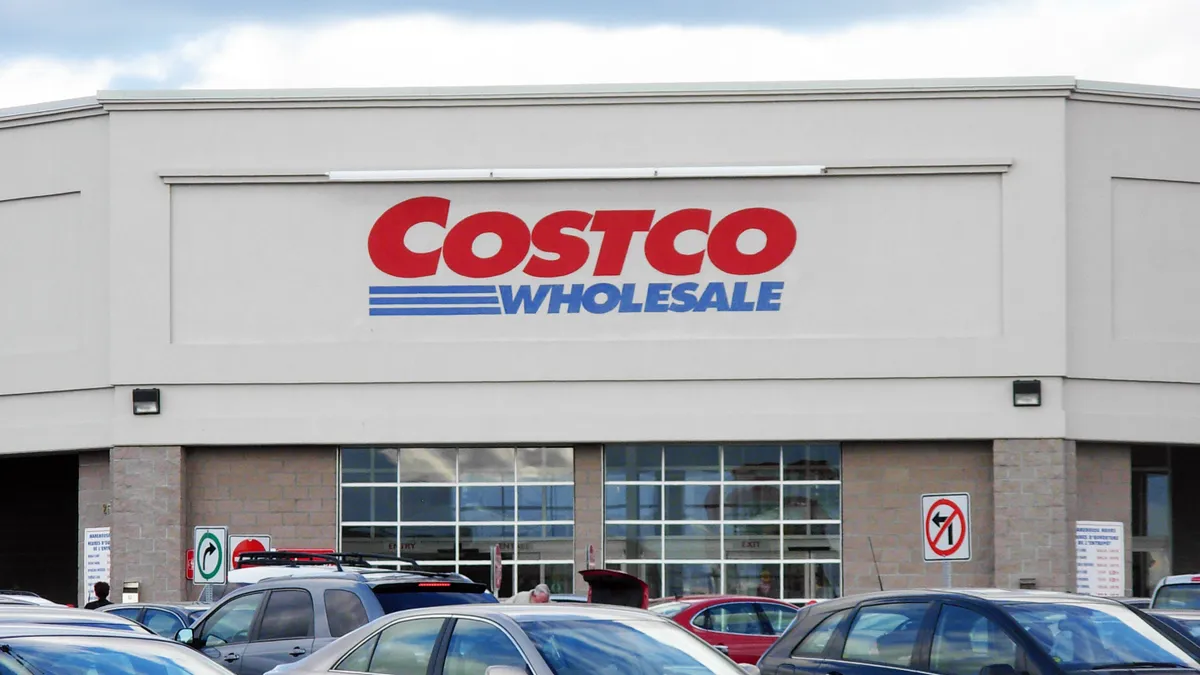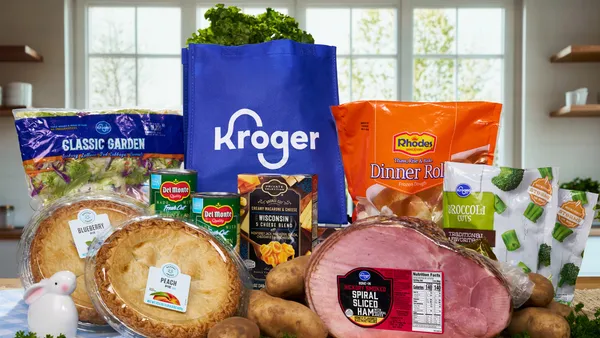Dive Brief:
- Costco has expressed interest in setting up a farming operation in Hawaii according to Letitia Uyehara, board chair of Hawaii's Agribusiness Development Corporation. Uyehara said the move would align with the state's focus on cutting down on imports.
- The Hawaii Farmers Union United expressed concern that local farmers could be displaced if Costco were successful in growing more local food on the island, but stated that the organization hoped the two could work collaboratively.
- In Hawaii Governor David Ige's 2019 State of the State address, however, indicated that companies like Costco are interested in using new agricultural techniques like high-tech greenhouses to complement local food production and to replace out-of-state produce imports.
Dive Insight:
Hawaii may seem like a surprising choice for Costco to launch its in-house farm operation, but the potential move would give Costco greater flexibility and quality control over its supply chain while cutting down costs, Timothy Campbell, senior analyst at Kantar Consulting, wrote in an email to Grocery Dive.
Considering the logistics required to keep store shelves stocked with fresh produce and other items, it could go a long way toward reducing the brand's supply chain expenses. Costco is already at a competitive disadvantage compared to Hawaiian retailers who don’t have to pay steep shipping costs to transport perishable goods, so the bulk retailer could shift the money it spends on shipping and logistics to set up shop in town.
By having a local operation, Campbell noted that Costco could cut out the traditional supplier and pass on savings to its customers. In addition, by having full control of the supply chain, the bulk retailer could be more nimble in when to shift what items it plans to stock in its stores instead of sticking to the typical top-selling products.
"Even if Costco’s major competitors in Hawaii also face a level logistical playing field, Costco may sense an opportunity to use its scale and establish a local source of goods that could further undercut the competition whereas the cost savings of such a move in another state would not be as great because it would naturally already be more logistically integrated with the rest of its sourcing network," said Campbell.
Costco has seen demand for organic products skyrocket. The retailer has been the top seller of organic food products in the U.S. for several years, Campbell adds, making it unsurprising that it would be looking for a way to dig into the sector at the farm level, perhaps to ensure organic compliance.
This move could, however, create concern among local farmers as the large-scale corporation, with its deep pockets and ample resources, would likely be able to immediately outpace small farmers' production capacity. As noted by KHON2, Hawaii Farmers Union United President Vincent Mina has already indicated his hope that Costco would collaborate with local farmers instead of displacing existing small-scale operations.
Costco has previously made other moves to shift some of its initiatives in-house. In 2018, the company brought the production of its rotisserie chickens in-house after sales experienced an 8% growth rate since 2010. By doing so, the company is projected to save the company 10 to 35 cents per bird. Having a reliable supply and more transparency in its supply chain were also motivating factors. The company also is currently building a large-scale chicken processing plant in Nebraska that will serve as the center of a farm-to-table production system for its $5 birds. Once finished, it will be capable of processing two million chickens each week to support sales, which sit around 60 million birds annually.
Surety and margin slashing are driving other retailers to take control over aspects of their supply chains as well. Kroger and Albertsons started investing in milk processing and bottling facilities in 2017, with Kroger processing all the fresh milk it sells in-store. Walmart also announced plans to open a large dairy plant in Indiana that produces milk products for nearly 500 of its stores.












